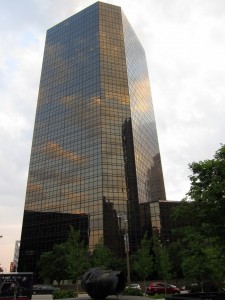Quotes about engaging in a protest
About a year ago, a DI reader named Mike Baker handed me his extensive collection of quotes and invited me to publish them. Today's quotes from Mike are on the topic right and the duty to engage in a political protest: "A Patriot must always be ready to defend his country against his government." Edward R. Abbey "It does not require a majority to prevail, but rather an irate, tireless minority keen to set brush fires in people's minds." Samuel Adams "The hottest places in Hell are reserved for those who remain neutral in time of great moral crisis." Dante Alighieri, Italian poet (1265-1321) "Silence never won rights. They are not handed down from above; they are forced by pressures from below.: Roger Nash Baldwin So long as we have enough people in this country willing to fight for their rights, we'll be called a democracy. Roger Nash Baldwin "All that is necessary for the triumph of evil is that good men do nothing" Edmund Burke "True patriotism hates injustice in its own land more than anywhere else." Clarence Darrow "No matter that patriotism is too often the refuge of scoundrels. Dissent, rebellion, and all-around hell-raising remain the true duty of patriots." Barbara Ehrenreich "Those who make peaceful revolution impossible will make violen trevolution inevitable." John F. Kennedy “Think for yourself, question authority.” Timothy Leary "We must not confuse dissent with disloyalty. When the loyal opposition dies, I think the soul of America dies with it." Edward R. Murrow "There is one tradition in America I am proud to inherit. It is our first freedom and the truest expression of our Americanism: the ability to dissent without fear. It is our right to utter the words, "I disagree." We must feel at liberty to speak those words to our neighbors, our clergy, our educators, our news media, our lawmakers and, above all, to the one among us we elect President." The Nation (15 July 1991) "First they arrested the communists, but I was not a communist, so I did nothing. Then they came for the social democrats, but I was not a social democrat, so I did nothing. Then they arrested the trade unionists, and I did nothing because I was not one. Then they came for the Jews and the Catholics, but I was neither a Jew nor a Catholic and I did nothing. At last they came and arrested me, and there was no one left to do anything about it." Rev. Martin Niemoller, nazi prison survivor "The price of apathy towards public affairs is to be ruled by evil men." Plato "Do not... regard the critics as questionable patriots. What were Washington and Jefferson and Adams but profound critics of the colonial status quo?" Adlai Stevenson "If... the machine of government... is of such a nature that it requires you to be the agent of injustice to another, then, I say, break the law." Henry David Thoreau "Disobedience, in the eyes of anyone who has read history, is man's original virtue. It is through disobedience that progress has been made, through disobedience and through rebellion." Oscar Wilde

